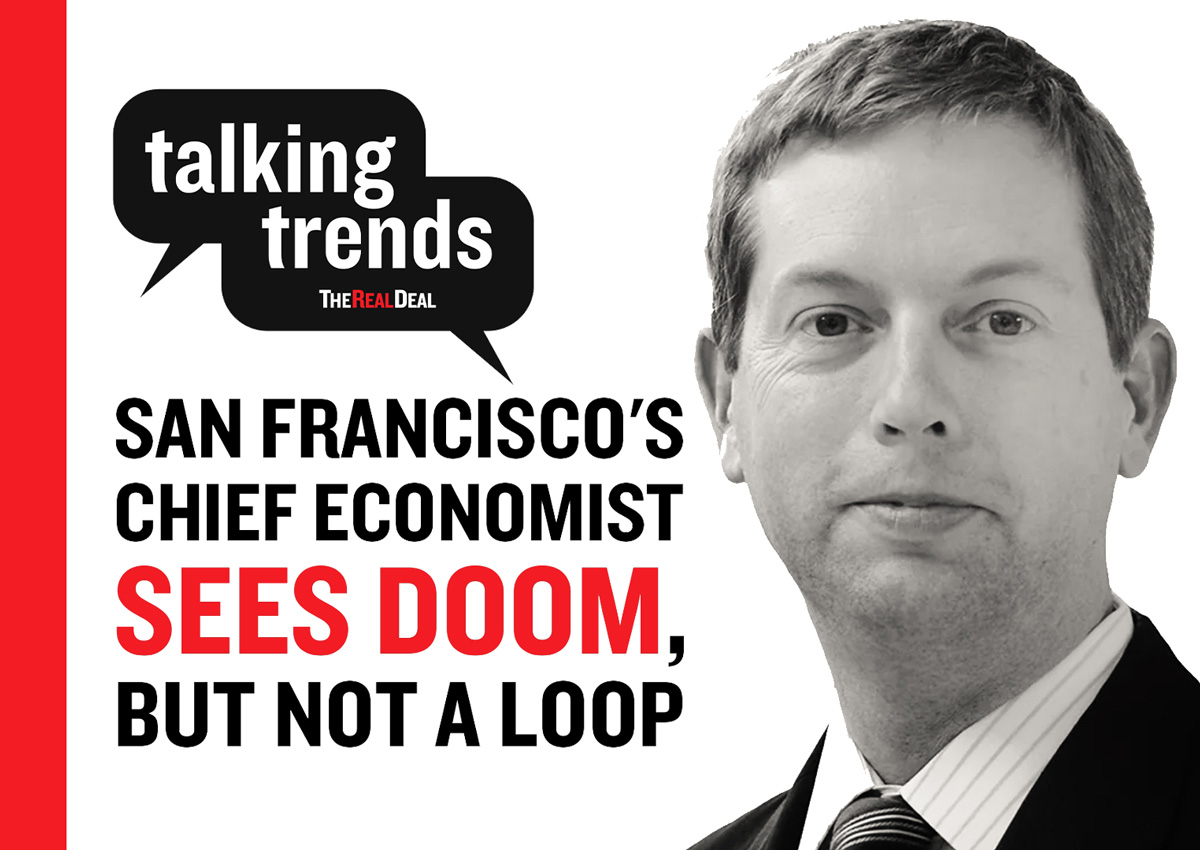S
an Francisco's economy is facing challenges due to the pandemic's impact on businesses. The city's Chief Economist, Ted Egan, is analyzing data to understand these challenges better and provide insights to policymakers and voters. He has written reports on the potential impact of bike lanes on struggling commercial corridors and provided monthly updates on the city's economic situation. Currently, he is working on reports about two local ballot measures coming up for vote this November: one on business tax reform and another on a new tax for ride-hailing services like Uber, Lyft, and Waymo to fund the struggling San Francisco Municipal Transportation Agency. Post-election, he will focus on the implications of rezoning the city in accordance with its state-mandated Housing Element.
Egan shared his thoughts on the current state of the city's economy with TRD. He believes that while there are warning signs of a fiscal spiral leading to negative reinforcing dynamics, he does not see any immediate signs of doom. The good news is more on the labor market side, while the bad news is more on the real estate side. Tech employment has seen a consistent uptick since April, but if people aren't coming into the office, it doesn't necessarily mean they're pumping money into the economy.
The sales tax data shows that San Francisco is at about 80% of 2019 levels as far as revenue and occupancy in hotels, while other cities have more than recovered on both. The hospitality sector's delayed recovery is due to business tourism being a significant reason in terms of hotel revenue, and they're not sustaining the rates as much as business travelers did. The hotel industry has pivoted more to leisure than before, but it's not sustaining the rates as much as business travelers did.
The city needs to adjust its spending to account for lower revenue streams due to work from home. Every year, they balance the budget in San Francisco, and the five-year financial planning forecast shows a stark picture of revenue growth not at the level they are used to seeing in the city, and costs growing at levels they are used to seeing in the city. This is not sustainable for the long term.
Egan's office did recommend lowering developer fees for inclusionary housing to make financial sense for some types of projects. The city is still going to see less housing production than they're used to, but they would expect to see some low- and mid-rise projects be closer to feasibility. They will continue to work on their property tax model and look at the results now that they have some assessment appeals data to inform what they think their property tax revenue will look like.
Housing is more affordable than before the pandemic, and residential rents are flat since 2019. They haven't seen a flood of people moving into San Francisco yet to take advantage of that affordability. The migration of people who moved in during 2021 and 2022 fits the profile of those who were moving in before: a lot of tech workers and young people. They're not yet seeing a major shift in who's choosing to live in San Francisco, but they're not sure that the relative affordability story is done changing.
The city can impact the speed of its economic recovery by adjusting things they can control to encourage more investment and economic development. However, they can't lead the market; they need to support private sector partnerships to make things happen. Office vacancy is up everywhere, but nowhere as much as it is in San Francisco due to its office mix and how much they've adapted to remote work.












